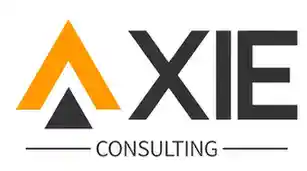
Meta to Train AI Models Using EU User Data: What You Need to Know
Meta, the parent company of Facebook, Instagram, and WhatsApp, has confirmed its plans to use public data from EU users to train its AI models. This move aims to enhance the cultural relevance and accuracy of its AI tools for European audiences. But what does this mean for users, and how will it impact privacy? Let’s break it down.
Why Is Meta Using EU User Data for AI Training?
Meta argues that training AI on region-specific data helps create tools that better understand local dialects, humor, and cultural nuances. The company stated, "We believe we have a responsibility to build AI that’s not just available to Europeans but is actually built for them."
This approach isn’t unique—Google and OpenAI have also used European data for AI training. However, Meta emphasizes its commitment to transparency, providing users with clear notifications and an easy opt-out process.
What Data Will Meta Use?
Meta will only use publicly shared content from adult users in the EU. This includes:
- Public posts and comments
- Interactions with Meta AI (e.g., questions and queries)
The company has clarified that private messages and data from users under 18 will not be used for AI training.
How Can EU Users Opt Out?
Starting this week, Meta will notify EU users via email and in-app messages about the data usage. These notifications will include:
- Details on what data is being used
- A link to an objection form for opting out
Meta assures users that all opt-out requests will be honored, whether submitted now or previously.
Privacy Concerns and Ethical Debates
While Meta frames this as a step toward better AI, privacy advocates have raised concerns. Here’s why:
1. The Definition of "Public" Data
Just because a post is public doesn’t mean users expect it to train AI. Many share personal stories or creative work without anticipating commercial use. This raises questions about consent and data ownership.
2. Opt-Out vs. Opt-In
Meta’s system requires users to actively object rather than opt in. Critics argue this puts the burden on users, many of whom may miss or ignore notifications, leading to passive data usage.
3. Bias and Misinformation Risks
AI models trained on social media data can inherit biases, stereotypes, and even misinformation. Meta must ensure rigorous filtering to avoid reinforcing harmful generalizations.
4. Copyright and Intellectual Property
Public posts often contain original content—should Meta compensate creators if their work improves AI? Legal battles over AI and copyright are already unfolding globally.
Meta’s Compliance with EU Regulations
Meta claims its approach aligns with EU data protection laws, citing a favorable opinion from the European Data Protection Board (EDPB). The company also delayed implementation last year to ensure regulatory clarity.
However, as AI evolves, so will regulations. The EU’s AI Act may introduce stricter rules on data usage, forcing companies like Meta to adapt.
What’s Next for Meta’s AI in Europe?
Meta’s AI chatbot is already available in Europe, and this data training aims to refine its responses. Future updates may include:
- More accurate local language support
- Better understanding of cultural contexts
- Multi-modal AI (text, voice, video)
As Meta pushes forward, the debate over AI ethics, privacy, and regulation will only grow louder.
Final Thoughts
Meta’s decision to train AI on EU user data highlights the fine line between innovation and privacy. While the company promises transparency, users must stay informed and exercise their right to opt out if desired.
What do you think? Is this a necessary step for better AI, or does it overstep privacy boundaries? Let us know in the comments!
